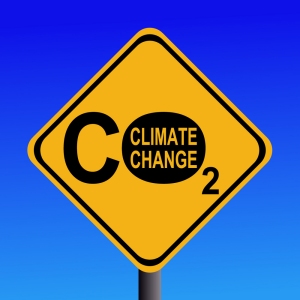With the current confusion on both sides of the Atlantic, around the legalities and process for Brexit, and the nightmare 1984 scenario of Donald Trump’s ‘alternative-fact’, climate-change denier administration, one irrefutable, scientifically-proven fact needs to be kept in mind – 2016 was the hottest year since modern record-keeping began 136 years ago.
How do we know this?
Because NASA scientists, including Dr Gavin Schmidt, Director of their Institute for Space Studies, says so. NASA produces monthly reports using publicly available data from 6,300 meteorological stations around the world, measurements taken from ships and buoys at sea, and Antarctic research stations.
Because the World Meteorological Organisation says so. Their data shows global temperatures running at 1.2°C above pre-industrial levels, dangerously close to the 1.5°C target agreed at the Paris climate change summit in December 2015.
Because US and UK academics and research bodies say so. Scientists such as Dr Michael E Mann from Pennsylvania State University and Professor Noah S Diffenbaugh from Stanford University, along with the UK’s Met Office Hadley Centre, the University of East Anglia’s Climatic Research Unit and the US National Oceanic and Atmospheric Administration.
Because Japanese monks say so. Yes, Japanese monks. Since 1443, priests living on the edge of Lake Suwa have been recording the date a ridge of ice called the omiwatari appears. Similarly, in 1693 in Finland, a merchant called Olof Ahlbom began recording the date and time of the spring ice break-up on the Torne River on the country’s border with Sweden. Contemporary analysis of these records by John Magnuson from the University of Wisconsin-Madison and Sapna Sharma of Toronto’s York University proves that since the Industrial Revolution changes in the timing of freeze and thaw have accelerated.
UK Climate Change Minister Nick Hurd has described Trump’s election as ‘a very big challenge’ to the world’s efforts to address the problem. Now 530 major US firms, including Unilever, Kellogg’s and Hewlett Packard have urged the new president to put a stop to his climate change denial which has seen pages removed from the official White House website and the e-mails and Twitter feeds of Environment Agency personnel gagged.
With Teresa May due to be the first foreign leader to meet with President Trump this week, it is more than disappointing that the topics due for discussion do not include climate change.
So, what can any one individual do in the face of this ostrich-like head-in-the-sand attitude? Keep putting the pressure on your elected local and national government representatives, keep questioning the climate change deniers – and keep making your own clean energy choices whenever and wherever you can.



 This connection between our organisations is reflected in a number of
This connection between our organisations is reflected in a number of
Environmental issues front and centre today
Today is World Environment Day, as designated by the United Nations Environment Programme (UNEP).
At Organic Energy, we’re at the heart of the movement to change the demand for those core human needs of heat and power over to sustainable sources, like wood pellet fuel from sustainable forests. But not everyone has the time or inclination in their busy lives to dwell for long on the big issues.
Today there will be widespread coverage of the environment, supported by events and the release of information that has been timed to give the day its maximum possible impact – helping the topic to take its place in the global news output.
In a way it’s a shame that such effort has to go into turning people’s heads on one day of the year instead of it being at the top of everyone’s agenda all the time. What we can say is that anyone who has invested in renewable heating is already playing their part and we salute every one of them.
So whether you’re someone who’s pondering turning to renewable energy sources for your home or business, someone who has already done so or someone who’s just, for now, examining the options, what better time than World Environment Day for us to invite you to share your favourite views of the world around us?
We’d love to see the images of our natural world that you’ve captured on camera and we’ll reward our favourite contribution with a £100 voucher to spend at specialist photography retailer, Jessops.
Just send us your favourite green scene – something that captures our natural world in all its glory, it’s magnificent detail or at its most furious and powerful. We can’t wait to see and share them!
Leave a comment
Posted in Comment
Tagged competition, photos, renewables, UNEP, World Environment Day